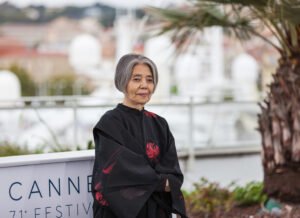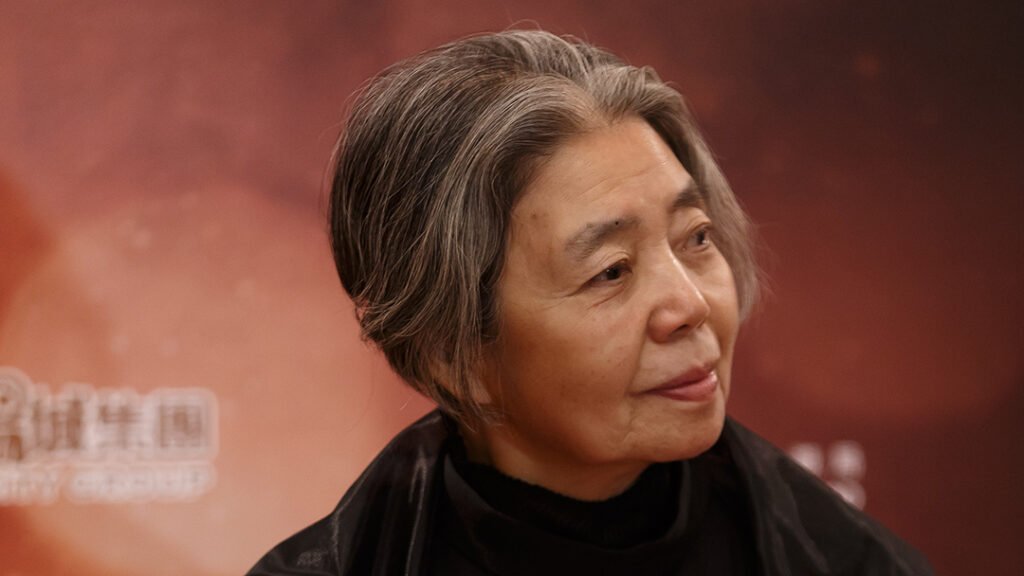Kiki Kirin: Celebrated Actress of Japanese Cinema
- By -Maria Mash
- Posted on
- Posted in Actors
Kiki Kirin, born in 1943 as Keiko Nakatani, is regarded as one of the most celebrated actresses in Japanese cinema. With a career spanning over five decades, Kiki Kirin was known for her distinctive acting style, characterized by a blend of humor, wisdom, and emotional depth. She became a beloved figure in Japanese film and television, often portraying strong, complex, and endearing elderly characters. Her collaborations with prominent directors and her ability to bring life to every role have left an indelible mark on Japanese cinema. This article explores Kiki Kirin’s illustrious career, her contributions to the film industry, and her lasting legacy.

Early Career and Rise to Prominence
Kiki Kirin began her acting career in the 1960s, initially working in television dramas and comedy shows. Early in her career, she was known by her stage name “Chiho Yūki,” but later adopted the name “Kiki Kirin” in the 1970s to signify a new chapter in her artistic journey. Her early roles showcased her talent for comedy and drama, reflecting her ability to navigate diverse genres with ease. It was during this time that she established herself as a versatile actress capable of delivering both light-hearted humor and profound emotion.
Moreover, Kiki’s performances often stood out for their authenticity and naturalism. She had a unique ability to connect with audiences by portraying everyday people facing ordinary yet significant moments in life. This approach earned her recognition and helped her transition to more prominent roles in both film and television, paving the way for her future success.
Collaboration with Hirokazu Kore-eda
Kiki Kirin’s collaboration with acclaimed director Hirokazu Kore-eda was one of the most defining aspects of her career. Their partnership resulted in some of the most beloved films in contemporary Japanese cinema. Starting with Still Walking (2008), in which she played a sharp-tongued yet caring matriarch of a dysfunctional family, Kiki’s performance was praised for its subtlety and emotional depth. The film’s exploration of family dynamics and grief resonated with audiences worldwide, largely due to her compelling portrayal.
In addition, Kiki’s role in Shoplifters (2018), which won the Palme d’Or at the Cannes Film Festival, further cemented her status as a powerhouse performer. As the elderly matriarch of a family of petty thieves, she brought warmth, wit, and complexity to the character, creating a nuanced portrayal that captivated viewers. Her work with Kore-eda highlighted her ability to bring out the intricacies of familial relationships, making her an integral part of the director’s exploration of contemporary Japanese society.
Portrayal of Complex Elderly Characters
Throughout her career, Kiki Kirin was known for her ability to portray elderly characters with depth, grace, and humanity. Her roles often subverted traditional stereotypes of aging, presenting older women as strong, witty, and independent. In films like An (2015), where she played a sweet bean paste maker with a mysterious past, Kiki’s performance was both touching and profound. Her portrayal captured the complexities of aging, illness, and loneliness while also celebrating the joys of life.
Furthermore, Kiki’s characters were often imbued with a sense of wisdom and resilience, reflecting her own outlook on life. She brought authenticity and warmth to her roles, whether it was as a loving grandmother, a sharp-tongued matriarch, or a spirited older woman defying societal norms. Her ability to convey a range of emotions and experiences made her performances relatable and memorable to audiences of all ages.
Impact on Japanese Cinema and Television
Kiki Kirin’s impact on Japanese cinema and television extends beyond her remarkable performances. She broke away from the conventional roles offered to women, especially older women, in the industry, paving the way for more diverse and substantial portrayals of female characters. Her commitment to her craft and her willingness to take on unconventional roles set a new standard for Japanese actresses, challenging the status quo and inspiring future generations.
Additionally, Kiki’s work was often rooted in a sense of realism and empathy, reflecting the everyday lives of ordinary people. This focus on realism resonated with audiences and critics alike, earning her numerous awards and accolades, including several Japan Academy Prizes and a Best Actress award at the Asian Film Awards for her role in An. Her influence in Japanese cinema is seen in the continued demand for authentic, character-driven stories that reflect the complexities of modern life.
Enduring Legacy and Influence
Kiki Kirin’s legacy in Japanese cinema is defined by her ability to transcend age and genre, delivering performances that are both timeless and universal. Her dedication to portraying realistic, multifaceted characters has left a lasting impact on the film industry. Even after her passing in 2018, her films continue to be celebrated for their emotional depth, humor, and humanity.
Moreover, Kiki’s approach to acting—marked by her naturalism, humility, and deep understanding of her characters—serves as an inspiration for both established and aspiring actors. Her career stands as a testament to the power of storytelling and the importance of authenticity in art, ensuring that her influence will be felt for years to come.
Conclusion
In summary, Kiki Kirin remains one of the most celebrated actresses in Japanese cinema, known for her compelling performances, memorable collaborations, and ability to portray complex characters with grace and authenticity. Her work has redefined the roles available to women, particularly older women, in film and television, breaking boundaries and challenging norms. Kiki Kirin’s enduring legacy as an actress and cultural icon continues to inspire, affirming her place as a beloved and influential figure in Japanese and international cinema.



